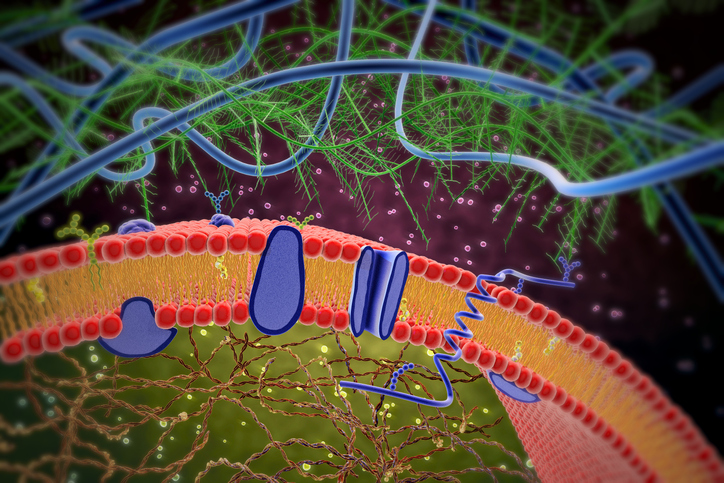Understanding the role and impact of Mitochondrial Health on overall human health has been in the focus of research in the last decade. There is a good understanding of mitochondria’s role as the central powerhouses of human cells, but what are mitochondria actually responsible for and how does their health impact overall human wellbeing?
Mindd International Forum, 23-24 March (Live in Sydney, Australia and Livestreaming globally)
Certified practitioners who pass the assessment will be listed at mindd.org. A certificate of completion will be provided for CPD applications.
At the 2019 Mindd Forum, there will be a particular focus on mitochondrial health. The guest speakers Dr Nancy O’Hara, Dr Liz Mumper and Dr Robert Naviaux are highly knowledgeable in this area and will be revealing clinical insights to improve the health of all patients at a cellular level.
What are Mitochondria and What Are They Responsible For?
Mitochondria are a compartment, called an organelle, found inside the cell. They are mostly responsible for processing food, combined with the oxygen we breathe, to generate energy known as adenosine triphosphate (ATP). This energy is then used to facilitate all the biological processes required to sustain human life. This biochemical process is called cellular respiration.
According to the United Mitochondrial Disease Foundation, mitochondria are responsible for generating over 90% of the energy required by the human body to facilitate organ function. If there is an issue with the generation of energy from mitochondria, cell injury and even cell death may follow. The organs that require the largest amounts of energy to function such as the heart, brain, kidneys and liver are most affected.
How Does Mitochondrial Health Impact Human Health?
Without effective mitochondrial functioning, growth and development would be hindered. Every day bodily processes such as digestion, cognition and cardiovascular function would also be affected. All human biochemical reactions require energy to facilitate them and this energy is created in the mitochondria, making their role irreplaceable.
Defence against Free Radicals and Oxidative Damage
Mitochondria are also involved in the preventing the creation of free radicals and reversing oxidative damage. As a result of oxidative stress, damage to mitochondria is linked to the pathogenesis of a variety of disorders such as schizophrenia, bipolar disease, Alzheimer’s disease, epilepsy, migraines, stroke, neuropathic pain, Parkinson’s disease, heart disease, chronic fatigue syndrome, fibromyalgia and more.
Mitochondria act as the mediators throughout the process of apoptosis (cell death), which is important in ensuring that dysfunctional cells that could potentially be problematic are no longer biologically active. Whilst all cells are exposed to some level of oxidative damage, it is particularly important that mitochondria are able to understand the messages being sent from the cell and are able to respond accordingly. If the mitochondria cannot initiate cell death where required, further problems and disease states may progress.
What Factors Contribute to Weakening Mitochondrial Health?
Significant oxidative damage that affects inner membrane permeability can damage the mitochondria. Oxidative stress can be caused by certain medications, smoking, alcohol, environmental toxins, pesticides and a diet high in high-fructose corn syrup. Genetic predispositions to mitochondrial disorders also play a role in mitochondrial health.
Protecting mitochondrial health – initial clinical interventions that will be explored in-depth at Mindd Forum 2019
- Antioxidants such as alpha lipoic acid, N-Acetyl Cysteine and coQ10
- Exercise that stimulates mitochondrial biogenesis
- An antioxidant and nutrient-rich diet. Some great examples of antioxidant-rich foods are berries, cherries, turmeric, cacao, broccoli, carrots, tomatoes, dark leafy greens and many more.
- Vitamin B2 to support the citric acid cycle and energy production
- Omega 3 Essential Fatty Acids to improve the cell wall function of a neuron
- Ensure proper sleep as broken sleep will increase oxidative damage and neuronal plaques
For more information on the Forum or to register (Live or Livestream) visit the Speakers and Program page…
References:
- https://www.ncbi.nlm.nih.gov/pubmed/17605107
- https://www.sciencedirect.com/science/article/pii/S0005272810000058
- https://www.ncbi.nlm.nih.gov/pmc/articles/PMC4762029/
- https://www.ncbi.nlm.nih.gov/pmc/articles/PMC4684129/
- https://www.ncbi.nlm.nih.gov/pubmed/18626887
- https://www.umdf.org/what-is-mitochondrial-disease/
- https://draxe.com/mitochondrial-disease/
- https://articles.mercola.com/sites/articles/archive/2018/02/25/mitochondria-facts.aspx
- https://www.healthline.com/health/oxidative-stress#prevention
https://www.ncbi.nlm.nih.gov/pubmed/23733637 - https://science.howstuffworks.com/life/cellular-microscopic/apoptosis.htm
- https://ods.od.nih.gov/factsheets/Omega3FattyAcids-HealthProfessional/
- https://www.sciencedaily.com/releases/2018/04/180413155301.htm
- https://www.ncbi.nlm.nih.gov/pmc/articles/PMC4145906/







